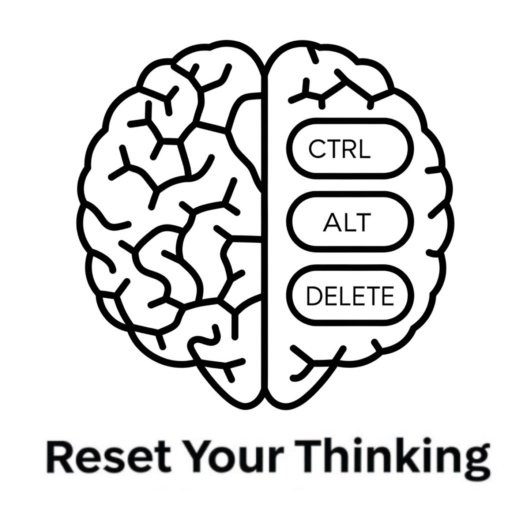This briefing document summarizes the main themes and important ideas presented in the provided excerpts from Manfred F. R. Kets de Vries’ “The CEO Whisperer.” The excerpts offer insights into the author’s psychodynamic approach to understanding individual and organizational challenges, drawing on psychoanalysis, management theory, and other related disciplines.
Main Themes
- The Importance of Self-Awareness and Introspection: A central theme revolves around the necessity for individuals, particularly leaders, to engage in deep self-reflection to understand their motivations, behaviors, and inner “scripts.” The author emphasizes the limitations of surface-level understanding and the value of exploring the unconscious.
- “Unravelling the narrative of our life, and embarking on such a personal journey, can be a highly effective way to resolve problems as wide-ranging as self-esteem issues, persistent anxiety problems, stress symptoms, sexual dysfunction, feelings of depression, envy, jealousy, and lack of purpose, as well as many other issues that will trouble us at various stages of our life.”
- The Power of Inner Narratives and “Scripts”: Kets de Vries introduces the concept of the “inner theater” and the “scripts” that drive an individual’s behavior. Understanding these deeply ingrained patterns, often shaped by early life experiences and significant relationships, is crucial for personal growth and change.
- “Frankly, I am far more interested in the ‘scripts’ that drive an individual’s inner theater —what’s going on inside them.”
- “According to Joyce McDougal, if we want to understand the other, we have to make sense of their inner scripts.”
- The Role of Early Life Experiences and Family Dynamics: The excerpts highlight how past experiences, especially within the family, significantly shape an individual’s character, attachment styles, and behavioral patterns. The initial email from an executive details a troubled family background and its ongoing impact.
- “Looking back, I realize that I couldn’t have had the same relationship with my mother as my brother (in secret) had with her. Otherwise, why would he scream at me that my mother hated me?”
- “A lot of the stories I’m told by greedy people feature early negative parental experiences that set the stage for feelings of low self-esteem, creating a kind of ‘basic fault’—a life-long search for ‘something that’s missing’ that would give them some form of satisfaction.”
- The Complexities of Helping and Guidance: The author reflects on the challenges and responsibilities of being a “whisperer” (coach, therapist, or consultant). He emphasizes the importance of tolerating uncertainty, avoiding premature diagnoses, and guiding individuals towards self-discovery rather than providing simplistic solutions.
- “Realizing how handicapped I am, in light of my ignorance, should I just ignore this communication? At the same time, I always tell myself and others that the capacity to tolerate a large amount of uncertainty is a prerequisite for an effective executive coach or therapist.”
- “Always be careful whom you ask for help. Caveat emptor—buyer beware.”
- The Potential for Change and Growth: Despite the emphasis on deeply rooted patterns, the excerpts also convey a sense of optimism about the possibility of personal transformation. Concepts like “regression in the service of the ego” and “Aha! moments” suggest that individuals can tap into unconscious resources and gain insights that lead to positive change.
- “In these situations, unconscious material rises to consciousness and is used in the service of personal growth and creativity.”
- “These ‘light bulb’ moments can be compared to an epiphany—a sudden manifestation of the essence or meaning of something that will (or can) contribute to significant change.”
- The Impact of Societal and Cultural Forces: The author touches upon broader societal shifts, such as the transition from “Gemeinschaft” (community) to “Gesellschaft” (society) and the influence of the self-esteem movement, on individual behavior, particularly narcissistic tendencies.
- “During the last century , a transition from Gemeinschaft toward Gesellschaft has taken place, a process that has accelerated in recent decades. This implies that the focus on what’s best for the community and the family has changed to ‘what’s best for me.’”
- The Double-Edged Sword of Certain Personality Traits: The excerpts explore the complexities of traits like stubbornness and greed, suggesting they can be both beneficial and detrimental depending on the context and underlying motivations.
- “I have learned from personal experience that, at times, being stubborn was the only way that I could turn what I thought was a good idea into reality… So, I believe that stubbornness can be a great leadership quality—with the substantial condition, that is, that you are right in what you are stubborn about.”
- “Greedy people, consciously and unconsciously, link their self-worth to their financial worth. It has become their main way of keeping score. Yet greed is not really a financial issue; it is all about having a troubled mind.”
- The Role and Management of Regret and Disappointment: The author discusses the inevitability of regret and disappointment, emphasizing the importance of learning from these experiences rather than being consumed by them.
- “My hope is that people don’t regret the past but learn from it. But can you regret the life you didn’t lead?”
- “Remember that disappointment is not meant to destroy you. If taken in your stride, it can strengthen you and make you even better.”
- The Phenomenon of Transference: The concept of transference, projecting past relationship patterns onto present interactions, is presented as a crucial dynamic in understanding interpersonal behavior and a valuable tool in therapeutic settings.
- “Freud understood that the reason for his unsuccessful therapeutic intervention with Dora lay in his failure to recognize the projection of emotions that pertained to a person from Dora’s past onto Freud himself. Subsequently, but belatedly, he understood that a person’s transferential reactions revealed a lot more about them than a patient could put into words.”
- The Dangers of Cult-like Dynamics: The author explores the characteristics of cults and how individuals can be drawn into them, highlighting the role of charismatic leaders and the suppression of critical thinking.
- “The behavior of] people under the influence of cults is similar to that we observe in addicts. Typical behavior for both includes draining bank accounts, neglecting children, destroying relations with family, and losing interest in anything except the drug or cult.”
Most Important Ideas or Facts
- The initial email serves as a case study: It illustrates the interconnectedness of personal and professional problems and the desire for guidance in navigating a complex life situation.
- Labeling individuals can be limiting: The author expresses caution against fixed diagnoses, emphasizing the importance of understanding the underlying “scripts” and individual complexities.
- “Is it enough to label people as depressed, paranoid, obsessional, bipolar, narcissistic, or psychopathic?”
- The “oxygen mask first” principle is applied to self-care: Before helping others, individuals need to prioritize their own well-being.
- “Likewise, it is essential that we love ourselves before we can love another.”
- The concept of “life anchors”: These are fundamental motivational themes that drive behavior and give meaning to life plans. The author has developed the “Inner Theater Inventory (ITI™)” to help identify these anchors.
- The significance of nightmares: Peter’s nightmare about his successful friend reveals underlying anxieties about the value and meaning of achievement.
- Self-actualization requires self-discovery and reflection: It involves moving towards one’s potential and feeling secure in oneself, less dependent on external validation.
- “What a man can be, he must be. This need we call self-actualization.”
- Setbacks can be catalysts for growth: The author’s experience of being denied a position at Harvard Business School led him to pursue psychoanalysis and writing, ultimately shaping his career path.
- Stories are fundamental to human experience: We use narratives to make sense of our lives and the world around us.
- “We tell ourselves stories in order to live.”
- “Rewriting” stories involves exploring different dimensions of one’s life: Intrapersonal, interpersonal, developmental, and existential aspects are crucial for gaining deeper understanding.
- Altruism can be self-beneficial: Helping others activates reward centers in the brain and contributes to mental well-being.
- “When you help others, you also help yourself, a highly successful prescription for better mental health.”
- Unconscious forces can significantly influence behavior: Recognizing and understanding these forces is essential for personal control and change.
- “Secondary gain” explains why some individuals may unconsciously resist resolving their problems.
- Sigmund Freud’s contributions to self-reflection are highlighted: Despite controversies, his work emphasized the importance of understanding inner demons.
- The maxim “Know thyself” remains crucial for mental well-being.
- Transitions in life can trigger existential anxiety.
- Clarifying goals is the first step towards achieving them.
- The past does not dictate the future: Individuals can change their trajectory regardless of previous experiences.
- “While you can’t go back and change the beginning, you can start where you are and change the ending.”
- “Regression in the service of the ego” is a constructive form of regression: It allows unconscious material to surface for creative problem-solving and personal growth.
- “Aha!” moments involve neurological processes: High activity in the amygdala signals significant neural reorganization and contributes to long-term memory of insights.
- Insight alone is often insufficient for lasting change: Modifying maladaptive behaviors requires ongoing effort and support.
- Transference is a common human phenomenon: We often react to present relationships based on past experiences.
- “Transference…dominates the whole of each person’s relations to his human environment.”
- Narcissistic tendencies can lead to a fall from grace: David’s story illustrates the dangers of excessive self-focus and the potential for a change in fortune.
- Greed can be a maladaptive coping mechanism rooted in feelings of inner emptiness and early negative experiences.
- Greed is not just about finances but reflects a troubled mind and can harm both the individual and others.
- Regret can have a survival function: It prompts retrospective analysis and can lead to learning and positive change.
- Stubbornness can be a strength when one is right but a weakness when it blinds one to evidence.
- Narcissistic Personality Disorder is characterized by grandiosity, a need for admiration, and a lack of empathy.
- Cults often exploit vulnerabilities and demand complete loyalty, employing manipulative tactics.
This briefing provides a foundational understanding of the key ideas presented in the excerpts, emphasizing the author’s psychodynamic perspective on personal and professional development. The concepts discussed offer valuable frameworks for understanding human behavior and the complexities of individual and organizational change.
RYT Podcast is a passion product of Tyler Smith, an EOS® Implementer (more at IssueSolving.com). All Podcasts are derivative works created by AI from publicly available sources. Copyright 2025 All Rights Reserved.

